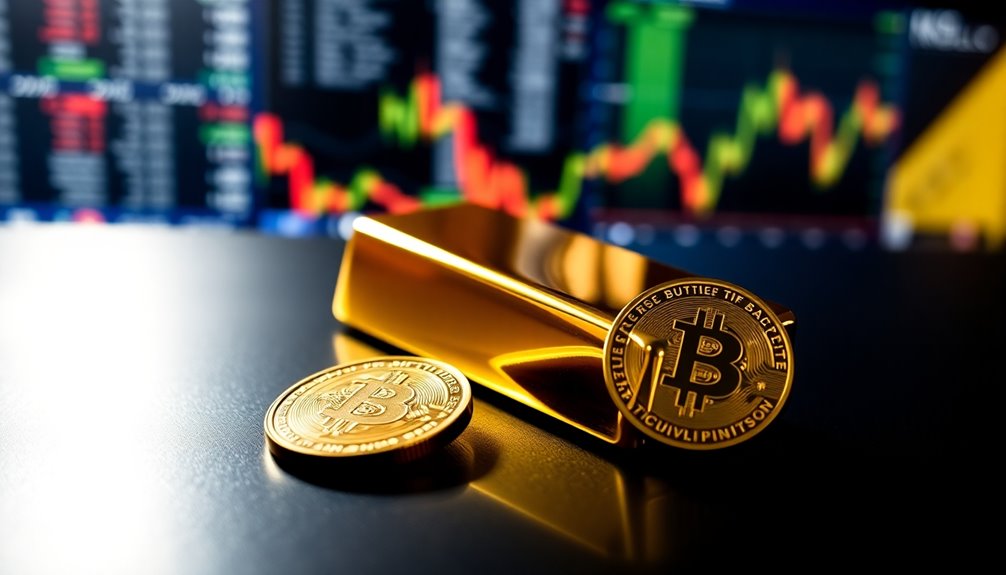As Trump's trade war escalates, you might notice a shift in how investors view safe-haven assets. With economic uncertainty and inflation worries on the rise, gold is reclaiming its throne, leaving Bitcoin struggling to keep up. While Bitcoin offers potential long-term gains, the current climate favors the stability of traditional assets. What does this mean for the future of cryptocurrency in an increasingly volatile market?

As Trump's trade war escalates, you're likely noticing its ripple effects on various markets, including Bitcoin. The introduction of new tariffs on goods from Canada, Mexico, and China has sent shockwaves through the economy, causing volatility that even extends to cryptocurrencies. You might've seen Bitcoin's price dip below $100,000 recently, as market jitters take hold. This isn't just a fleeting trend; the uncertainty surrounding tariffs is raising inflation concerns, which could hinder interest rate cuts and diminish Bitcoin's attractiveness as an investment.
The trade war has disrupted global trade, creating potential recession risks that are hard to ignore. With rising consumer prices likely due to tariffs, the economic landscape feels increasingly precarious. Market volatility is now the norm, impacting both traditional assets and cryptocurrencies alike. After hitting record highs, Bitcoin has pulled back, reflecting the cautious sentiment gripping investors. You might find yourself wondering how this will affect your investments, especially with the looming threat of inflation.
Historically, Bitcoin has been viewed as a safe-haven asset, much like gold. However, its performance during this trade war has been mixed at best. While short-term fluctuations spark uncertainty, long-term predictions still look promising, with estimates suggesting Bitcoin could reach between $160,000 and $180,000. Yet, the more stable and established gold maintains its reputation as the go-to safe haven during economic turmoil. You may notice that during this trade war, investors are gravitating towards gold, which offers a sense of security that Bitcoin currently lacks. Gold traditionally viewed as a hedge against economic instability continues to attract conservative investors seeking stability amidst the chaos.
Additionally, while regulatory clarity promised by executive orders could support Bitcoin's growth, the overshadowing effects of the trade war complicate matters. Market sentiment can shift rapidly based on economic and political developments, and right now, it feels like gold is winning the battle for investor preference. As you navigate these turbulent waters, remember that Bitcoin's volatility could deter some investors from fully embracing its potential.









